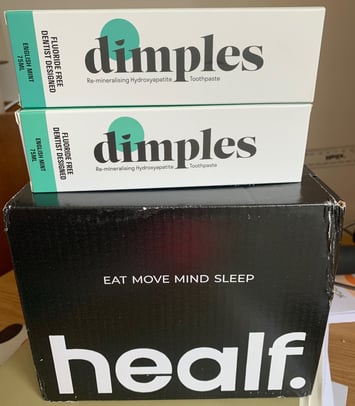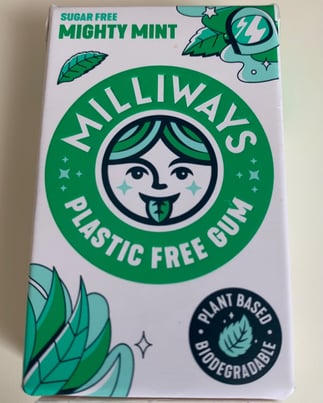Can You Really Rebuild Tooth Enamel?
The Truth About Remineralisation, Hydroxyapatite, and Why Prevention Isn’t on the NHS Radar (Yet)
Josie
6/6/20255 min read


If you're anything like me, you've reached your fifties with a renewed interest in staying well—body, mind, and teeth included. But while we’re busy rethinking menopause, muscle loss and mental health, what about our enamel?
Until recently, I didn’t even know it was possible to remineralise teeth. I thought once enamel was in decline, that was it—your only option was to wait for a problem and then have a filling, root canal treatment, or even an extraction. In my case I went for root canal and crown costing over £1200 ( because I was told that these could only be done privately...unless I wanted a very visible metal crown). The NHS option was an extraction. And unfortunately, that's still the narrative in most NHS dental surgeries.
Despite regular checkups, I was never once offered advice about how to prevent enamel loss. Instead, it was the usual: clean, drill, fill, and keep an eye on it. Not one dentist mentioned diet, saliva health, or alternatives to fluoride. I only discovered this whole area of preventative care after doing my own research—starting with Dr. Mark Burhenne’s informative site, ‘Ask the Dentist’.
So here’s what I’ve learned—and what I wish I’d known twenty years ago.
The Science: Yes, You Can Rebuild Enamel—If You Catch It Early
New research shows that the earliest stages of enamel erosion and decay can be reversed. Scientists are now studying how tooth enamel can be strengthened using minerals, peptides, and natural compounds—essentially giving your teeth the raw materials to repair themselves.
One of the most exciting developments? Nano-hydroxyapatite (nHAp).
What is Hydroxyapatite and Why Is Everyone Talking About It?
Hydroxyapatite is what your teeth are made of. When used in toothpaste in a nano-sized form, it can fill in tiny holes and rebuild weakened enamel—without the risks that come with fluoride.
Dr. Burhenne, founder of AskTheDentist.com and a former conventional dentist turned prevention advocate, explains that hydroxyapatite is just as effective as fluoride but safer, especially for those of us with sensitive systems, dry mouths, or concerns about overexposure.
European safety committees have now approved it for everyday use in toothpastes at concentrations up to 10%. Several well-regarded brands (like Boka, Davids, and Dimples—which I’m currently trying) use it as their main active ingredient.
Xylitol: A Natural Ally for Your Teeth
Xylitol is a naturally occurring sugar alcohol found in various fruits and vegetables. It's commonly used as a sugar substitute in sugar-free gums, candies, and oral care products. Beyond its sweetening properties, xylitol has garnered attention for its potential dental benefits.
How Xylitol Supports Enamel Health
Research indicates that xylitol can play a role in preventing tooth decay and supporting enamel health:
Stimulates Saliva Production: Chewing xylitol-containing gum increases saliva flow, which helps neutralize acids in the mouth and provides minerals essential for enamel remineralization.
Reduces Harmful Bacteria: Xylitol has been shown to reduce levels of Streptococcus mutans, the bacteria primarily responsible for tooth decay.
Enhances Remineralization: Some studies suggest that xylitol, especially when combined with other agents like calcium lactate or hydroxyapatite, can aid in the remineralization of enamel.
In summary, xylitol offers a convenient and effective means to support enamel health and prevent tooth decay, making it a valuable addition to oral care routines, particularly for those over 50.
Why Doesn’t the NHS Talk About This?
The truth is, NHS dentistry is still largely built around a "drill and fill" model. Dentists are under pressure to work quickly and meet quotas. Prevention takes time—and time doesn’t pay under the current contract system.
Although there have been pilot schemes aimed at changing this (back in 2016, there was even talk of rewarding dentists for preventing decay rather than just fixing it), meaningful reform hasn’t arrived.
In my own experience, despite visiting NHS dentists every 6 months ( and a private dental hygienist) for years, I’ve never once been asked about what toothpaste I use, what I eat or drink that might impact my enamel, or recommended to try xylitol gum or hydroxyapatite. Everything has felt reactive rather than proactive and this is very frustrating -it is easy and inexpensive to use these products, especially when compared to the cost of fillings, crowns and root-canal treatment.
Advocating for and adopting preventive practices can play a crucial role in maintaining oral health, especially as we age. We should all be asking our dentists about this. NHS dentistry doesn’t need to be second-rate. Dentists are well looked after by taxpayers in terms of initial training, pay and pensions.
Why It Matters More After 50
In midlife, our enamel can take a real hit. Hormonal changes, dry mouth (especially if you’ve gone through menopause), increased use of medications, and shifts in diet all raise the risk of erosion and sensitivity.
As we age, several factors can increase the risk of enamel erosion and tooth decay:
Reduced Saliva Flow: Medications and age-related changes can decrease saliva production, diminishing its protective effects.
Gum Recession: Exposed tooth roots are more susceptible to decay.
Dietary Habits: Changes in diet, including increased consumption of acidic foods and beverages, can erode enamel.
And because enamel doesn’t grow back once it’s fully lost, early intervention really matters.
Simple Changes You Can Make Today
If, like me, you want to do better for your future teeth, here are some easy wins:
Switch to a remineralising toothpaste
Look for ones with nano-hydroxyapatite. I’m currently trialling Dimples remineralising toothpaste, and it feels gentle but effective.Don’t rinse after brushing
Let those minerals stay on your teeth for longer to do their work.Avoid grazing
Give your mouth breaks between meals so your saliva can naturally restore balance.Stay hydrated
Saliva is your mouth’s natural defence—and water is the best way to support it.
Chew After Meals
Chewing xylitol gum for about 20 minutes after eating can help neutralize acids and support remineralization. I’m currently trying Milliways: plastic-free gum milliwaysfood.com
Moderation is Key
While xylitol is beneficial, excessive consumption can lead to digestive discomfort in some individuals.
Consult with Your Dentist
Discuss incorporating xylitol & nano hydroxyapatite into your oral care routine, especially if you have specific dental concerns or conditions.
Question the ‘normal’ advice
Start reading beyond the label and NHS leaflet and do your own research. Not all dentists are up to date with the latest research.
A Final Thought
We’ve been conditioned to outsource our dental health to the professionals. But if the system they’re working in doesn’t allow time for prevention, we need to take that power back. For me, switching toothpaste and changing a few habits has already made a difference in sensitivity and peace of mind.
If you’re over 50 and rethinking your health from the inside out—don’t forget your teeth.
Sources
Recommendations




